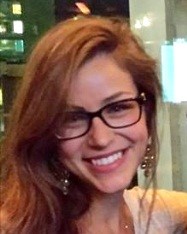Contributor: Morgan Motzel
Work and Life is a two-hour radio program hosted by Stew Friedman, director of the Wharton Work/Life Integration Project, on Sirius XM’s Channel 111, Business Radio Powered by Wharton. Every Tuesday from 7 pm to 9 pm EST, Stew speaks with everyday people and the world’s leading experts about creating harmony among work, home, community, and the private self (mind, body, and spirit).
On Work and Life, Erin Owen, executive coach at Wharton, sat in as guest host for Stew Friedman and spoke with Marci Alboher, journalist/author/speaker and Vice-President of Encore.org. Alboher discusses purpose in life’s second half – what we know now and what we can do to move forward.
The following are edited excerpts of Owen’s conversation with Alboher.
Erin Owen: Let’s give our listeners some foundation for our conversation. Tell us a little bit about Encore.org, what it is, and how it works.
 Marci Alboher: Encore.org is a non-profit organization spearheading the new movement of later-in-life work that combines social purpose with continued income and personal meaning. We help people who want to use the later part of their careers to make a difference in their communities and in the world. People are hitting mid-life and saying, “life is short, I want to make sure that what I do matters and that what I do contributes to the world”. At Encore, we do a lot of programs about second careers with meaning.
Marci Alboher: Encore.org is a non-profit organization spearheading the new movement of later-in-life work that combines social purpose with continued income and personal meaning. We help people who want to use the later part of their careers to make a difference in their communities and in the world. People are hitting mid-life and saying, “life is short, I want to make sure that what I do matters and that what I do contributes to the world”. At Encore, we do a lot of programs about second careers with meaning.
EO: You’ve coined the term “slashes” – give our listeners a little background on what “slashes” are and who “slashers” are.
MA: Years ago, I started noticing that it became a very trendy thing to define yourself with a lot of different “slashes.” It was happening within all strata of society. For example, celebrities like Angelina Jolie began identifying as an actress-slash-activist. We are seeing people take their passions and weave them in to these kinds of composite identities. It used to be that having multiple jobs was the purview of the very rich, who could easily move in many circles, or the working class, cash-strapped people who had to hold additional jobs as moonlighters. What’s changed is that big swaths of our society are now working in this way, and it’s happening for so many reasons. The modern world of work has involved so much free-agency, so much consultancy, so much “solo-preneuring,” that many people are taking their passions, their interests, and the causes that matter to them and figuring out ways to make very big commitments to multiple things at once. That’s where the slash idea comes from.
EO: Is that confusing for employers to see somebody like you – a lawyer/author/journalist/speaker? How would I fit you in my categories or my ideas of where you might fit in my organization?
MA: Yes, it can be confusing. When you say “fit” in an organization, I think you’re talking about a very specific issue that comes up with people who have multiple identities. If you’re looking for a traditional job, you’re really going to have to focus on the identity that fits in that situation instead of emphasizing your other identities that are irrelevant to the position. It may be that once you’re in the job, you find ways that your other identities enhance your ability to do your work. Alternatively, you may find that your other identities present ethical issues or conflicts of interests that you will have to navigate around. This is an area about which you really need to think carefully if you do choose to do multiple things. In many cases, people who do multiple things are self-employed and tend to have to worry less about those issues.
EO: So in a traditional job search situation you may need to have more than one resume customized to each of your slashes.
MA: Right, but if you have a job and you have a non-profit that you’ve founded or you’re involved on a Board for a cause you really care about, those things often really enhance your profile at work. You can find ways to involve your company in a local children’s organization in which you’re involved, for example, and you can arrange donations or leverage your work connections for fundraising. Stew Friedman talks about this with his idea of the “four-way-win” – how you can create synergy between the different domains of your life. A classic example could be someone who wants to raise money for an organization while getting in shape. They might organize a big bike ride for their company, and then suddenly they involve their kids in it so they have more family time. Throughout this, they’re raising money for their organization while at the same time raising their leadership profile at work. It’s feeding all parts of life in a multi-tasking kind of way. That’s when slashing works really nicely.
EO: We see great examples of individuals who take their own life experience, especially a challenging experience, and turn it into a wonderful organization to benefit others. How does this tie into the mission of Encore.org?
MB: One of the things we’re very interested in at Encore.org is how life experience is often the pathway to what you’re going to do next. Weaving together the strands of your life is something we see all the time. There’s this reinvention myth out there that you’re going to reinvent yourself anew out of whole cloth but so often, the strands of who we want to become are already there, and people are tying those strands together differently when they hit mid-life because they’re realizing that they are revisiting something, an earlier passion, or an earlier skill set, or a life experience that has helped shape them to where they’re going to go next.
Marci Alboher is the author of The Encore Career Handbook: How to Make a Living and a Difference in the Second Half of Life and One Person/Multiple Careers: A New Model for Work/Life Success. She is also a frequent contributor to the New York Times, where she originated the “Shifting Careers” column and blog. Learn more about her work at her website: heymarci.com.
Tune in to Work and Life on Tuesday, February 11 at 7 PM Eastern on Sirius XM Channel 111 for conversations with Jessica DeGroot (WG ’94) on how couples can share caregiving to mutual advantage and then with current Wharton MBA students Pamela Freed, Nohemie Sanon, Meaghan Casey, and Kristina Milyuchikhina on how women planning business leadership roles see their future work and family lives. Visit Work and Life for a full schedule of future guests.
About the Author
 Morgan Motzel is an undergraduate junior in the Huntsman Program in International Studies and Business at Penn focusing on Management and Latin America.
Morgan Motzel is an undergraduate junior in the Huntsman Program in International Studies and Business at Penn focusing on Management and Latin America.
Leave a Reply